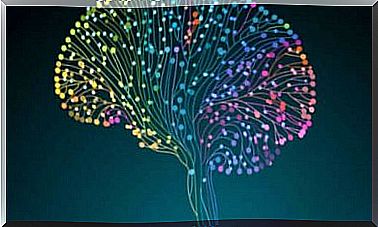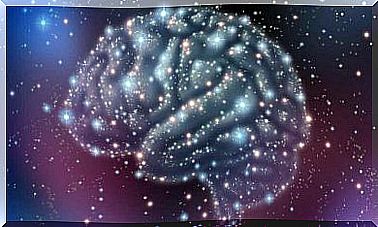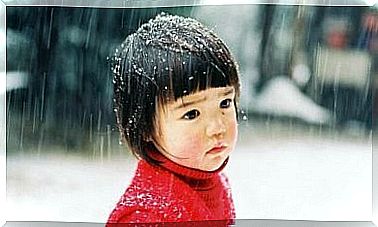Egocentric Language – What Does It Mean?

We have all seen someone talk to themselves at least once. In fact, I’m sure you’ve done it a few times too. Children are true experts in this. Many children under the age of six seem to have a spontaneous, egocentric language that affects their development.
Egocentric language is an interesting topic in developmental psychology. Although language has a very strong social character, it seems to hide on something else. Its spontaneous use, whether there is a recipient or not, can be an indicator that it fulfills several functions in addition to social communication.
In this article , we will explore two different theories that try to explain the presence and function of egocentric language. These two theories come from two of the most relevant psychologists in the theory of developmental psychology: Jean Piaget and Lev Vygotsky. They both provide two different explanations for this phenomenon.
Piaget’s theory of egocentric language
In order to understand Piaget’s view of this, it is important to consider his theory of evolution, which is based on the evolution of logical intelligence. Thus, this type of development will control the child’s ability to relate to others. According to Piaget, the child will show a lack of their social abilities until they develop the so-called ” theory of mind “.
For Piaget, the phenomenon of the egocentric language is centered around the person speaking, without taking into account the point of view of the other person. This happens because the child lacks skills in social interaction. We can also observe this egocentric behavior through thought and perception.

Why does this language exist if it is not useful in communication? Piaget states that egocentric language develops as an expression of the symbolic function that the child has just acquired.
Around the age of three, the child is able to see the world through language, but has not yet understood its social function. The language is based on themselves. It fulfills a symbolic function, rather than a communicative function.
Gradually, the child will acquire theory of mind, around the age of six or seven. It will make them understand social interaction and how important it is to use language to communicate.
In most cases, these stimuli are enough for the child to put their egocentric language behind them. Their thought process will go from egocentric to logical and they will learn the communicative aspects of language.
Vygotsky’s theory of egocentric language
Vygotsky’s explanation is completely different. He states that socio-cultural factors affect us from an early age. He rejects Piaget’s assumption that children under the age of six are not interested in social interaction. A baby’s communicative experiment clearly shows their interest in being social.
For Vygotsky, language has always had a social and communicative function. Children talk about being able to communicate with others and at the same time they develop a symbolic function in a social context.
Children begin to develop the various uses of language by using it. One of them is the ability of language to regulate behavior. Language helps us structure our thoughts and actions.

According to Vygotsky, egocentric language actually uses language to improve self-regulation. For that reason, it does not need to have a receiver. Why does egocentric language disappear at the age of six? This is where a key process called “internalization” takes place, according to Vygotsky’s theory.
At the age of six, the child is able to internalize this egocentric language and make it part of their thought process. This means that the process of self-regulation becomes part of their inner dialogue and that language is the essential basis of their thoughts.
The language is complex
These are two very serious attempts to explain the causes and context in which the egocentric language is being developed. Both hypotheses are different and have strengths and weaknesses. The information will vary depending on the point of view from which the language is studied.
This shows how complex and dimensional the language process is. It requires thorough research to be able to answer the questions that arise around it.









